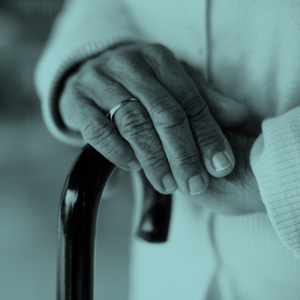
Breakfast Seminar
November’s Care Conversation heard from Bernadette Walsh, Chief Operating Officer at Mears Care Ltd, and Professor Nick Bosanquet, Emeritus Professor of Health Policy, Imperial College, on the challenges facing the domiciliary care market
- NULL - NULL
- NULL
“You can see the cycles come and go, and there’s a lot of change going on in the market. But it’s nothing we haven’t seen before,” Bernadette Walsh told Care Conversation delegates.
Her organisation had a staff of more than 18,000, of which half worked in the health and care sector, she pointed out. “I think if you get the basics right, the rest is really quite simple.” There was, however, a lack of joined-up thinking in the system, she said. “Any business is only as good as the people it employs, and its ability to recruit and retain the best people.” Mears was committed to driving up the pay and conditions of its care staff, whose work saved ‘huge amounts’ of money for the NHS, she said.
“We’re committed to recruiting people who are genuinely interested in care, and putting them on a genuine career path. It’s important that support workers feel they’re making a real difference.” Retaining staff in London could be a challenge, however, and the impact of Brexit was still unknown. “A lot of our staff are from Eastern Europe, and they’re the lifeblood for many organisations in the care sector.
“I’m not going to sit here and say the system isn’t in trouble,” she continued. “It’s a sector under pressure – the demographics are clearly there for all to see.” The number of people waiting for hospital discharge because of lack of care in the community had gone up by 160% in the last five years and 40% in the last year alone, she said, while 36% of council budgets were spent on adult social care. The system still worked in silos, she stressed. “Whether it’s health, social care or housing, people are not working together. But these are three legs of the same stool.”
The focus of her organisation was on reducing dependency and improving people’s health and independence, she said. “Things like small, short-term interventions to help people get back on their own feet until the time comes when they genuinely need long-term interventions. But too many people are going into the system and never coming out.”
The forthcoming Autumn Statement would reveal that the tax/spend outlook was going to be ‘dim’, Professor Nick Bosanquet told the seminar. “So the question is how do we use the existing money for the best outcomes?” Clarity was needed on issues around costs and the living wage, he said, as well as a longer-term investment plan.
“I’m a little allergic to Whitehall’s constant use of the word ‘crisis’ to describe any change in demand,” he stated. “We have the best service in the developed world in terms of home care, as confirmed by the CQC. So how do we use this resource, develop it and get more integration? Health has an appalling record of collaborating with other services.”
A longer-term investment plan would need four key elements, he explained, of which the first was a partnership approach between health and social care to move away from the “current guiding light of getting the maximum number of hours for the minimum cost”. This was creating huge problems in terms of quality, he said, whereas a truly collaborative approach would produce viable providers.
The second element was a more defined and stratified service that enabled people to buy different levels of intensity to suit their needs, while the third was seeing the low-cost services available in the community as “an essential part of the story” in terms of offering people some level of support. “I’m talking about things like social clubs, carer support, short-term rehab schemes, good neighbour programmes – instead of people just being told ‘there’s nothing for you’.” The final crucial strand was investment in training and research – a more evidence-based approach with “clearer guidelines about what actually works”, including more use of technology and apps.
“It’s all doom and gloom, tipping points, crises,” he said. “But there’s a lot of money being spent. We just need to get more value from it.”
Get in touch to register your interest in joining the network
View all past events
